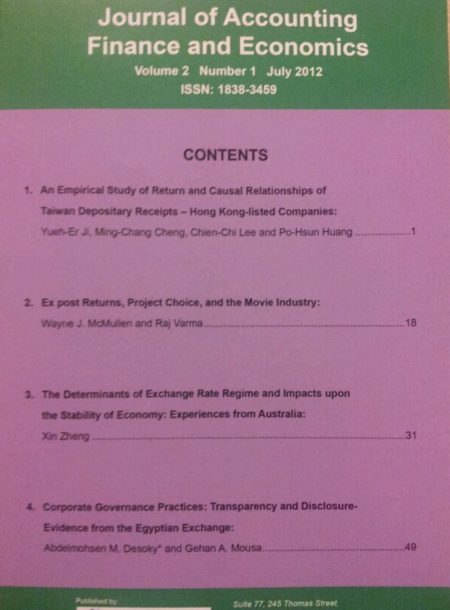Journal of Accounting, Finance and Economics
Vol. 8. No. 2., June 2018, Pages: 98– 110
An Empirical Relationship between Trade Liberalization and Industrial Growth in Bangladesh
Ayateena Ali and Sakib Bin Amin
This research paper empirically investigated the cointegration and
causal relationship between trade openness and industrial growth in
Bangladesh economy using annual data from 1980 to 2016. Trade
normally defined as the buying and selling of goods and services and
when there is trade, it acts as a growth for many countries in
developing industries. As there have been many studies relating to
this topic, maximum studies showed that there is a causal
relationship between trade and industrial growth. To check the
causal relationship in the context of Bangladesh, the main variables
that have been taken are- Industrial growth, Capital, Labor and
Trade. By employing the cointegration and Error Correction Model
approaches (ECM), the empirical results suggest that there is an
existence of a unique long run relationship. The hypothesis of this
research is, ‘Trade liberalization leads to rise in industrial growth.
The Augmented Dickey Fuller (ADF) test has been used to check if
the variables are stationary. Next, to check the robustness of the
relationship among the variables, the Johansen cointegration method
has been applied followed by the Vector Error Correction Model
(VECM) which also haveestimated in order to determine the shortrun
dynamics behavior and lastly Granger causality test has been
applied to check the long runbehavior. The results show that
bidirectional causality exists in short run and unidirectional causality
exists between trade and industrial growth in the long run. Therefore,
this proves the support of the hypothesis of this research paper for
the economy of Bangladesh.

